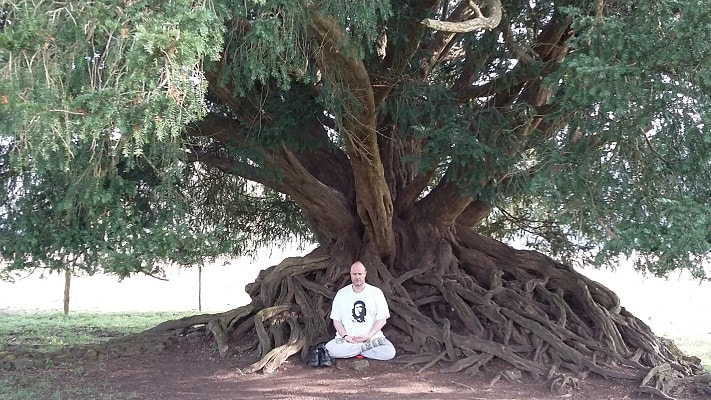The body is disciplined so that the mind may be ‘focused’. The Buddha teaches a type of Yoga, or at least a path that is recognisably ‘Yogic’ in origination. One of the first lines of the Patanjali Sutra reads ‘Yoga is the restriction of the fluctuations of consciousness.’ (Feuerstein 1989). Yoga is also an umbrella term used to describe a profound mind and body training that generates a permanent psycho-physical transformation. This is not a ‘subjective’ delusion, as the Buddha warns against this misidentification of inner awareness, and neither is it a hedonistic attachment to external pleasures (or pain) depending upon the conditionality of an individual. The Buddha advocates a non-identification with thought (and feeling), and a detachment from all physical sensation. Although there is a stage whereby the mind becomes free of surface thought (and a ‘stillness’ is experienced), nevertheless, eventually the process of thought is re-born in the mind but in an entirely ‘new’ manner which no longer ‘obscures’, ‘confuses’ or induces any form of ‘suffering’, etc. (The post-enlightenment situation is controversial and open to debate.)
Being a ‘Bodhisattva’ requires an individual to become truly ‘universal’ in perception, understanding and empathy. The conundrum of personal suffering must be solved before the suffering of the entire world can be taken on without any form of hindrance. To be a genuine Bodhisattva, is to be able to take responsibility for every single mode of suffering that exists in this world and the worlds beyond. Universal suffering is not limited to only that which humans feel – but necessarily includes ALL suffering everywhere. Furthermore, the committed Bodhisattva willingly takes on the suffering of past, the present and the future. The ‘intention’ is to be with those who are experiencing suffering, and to spiritually offer support and sustenance to help them through that which most would find difficult to experience or even face. How this is to be achieved is entirely dependent upon circumstance as there is no single method that meets all requirements. This is not an easy ability to achieve or function to perform. This is why Buddhist monastics in China take the ‘Bodhisattva Vows’ as well as the ‘Vinaya Discipline’ as part of their spiritual responsibilities.


 RSS Feed
RSS Feed